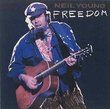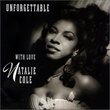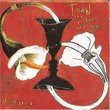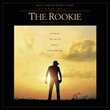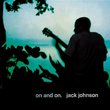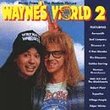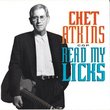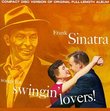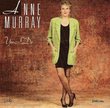| All Artists: Judy Collins Title: Maids & Golden Apples Members Wishing: 1 Total Copies: 0 Label: Wildflower Original Release Date: 1/1/2001 Re-Release Date: 10/2/2001 Genres: Folk, Pop, Rock, Children's Music, Broadway & Vocalists Styles: Contemporary Folk, Singer-Songwriters, Oldies, Vocal Pop, Folk Rock, Lullabies, Sing-A-Longs Number of Discs: 1 SwapaCD Credits: 1 UPCs: 687348129923, 766488132724 |
Search - Judy Collins :: Maids & Golden Apples
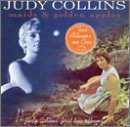 | Judy Collins Maids & Golden Apples Genres: Folk, Pop, Rock, Children's Music, Broadway & Vocalists
|
Larger Image |
CD DetailsSimilarly Requested CDs
|
Member CD ReviewsReviewed on 2/9/2007... Two albums on one CD - her first two albums - very special!
CD ReviewsA Maid Of Constant Talent & Good Taste Sasha | at sea...sailing somewhere | 11/01/2001 (4 out of 5 stars) "When a young artist names her first two albums not "Judy" or "Collins" but "A Maid Of Constant Sorrow" and "Golden Apples Of The Sun",you know she takes herself seriously.Originaly released in 1961. and 1962. their names were all I knew until I saw this CD recently."Who will buy this?" I wondered just to see the only copy snatched right in front of me.The comparisons with first two Baez albums are inevitable (some songs were recorded by both) althought Collins shows much more passion and involment where Baez seemingly seduces herself with the beauty of her voice.On these early albums Collins is frighteningly devoted keeper of the flame and her repertoire is almost exclusively traditional - which means not only ethereal beauty but also a certain (to some ears,overpowering) seriousness,cleverly mellowed by inclusion of joyous "O Daddy Be Gay",a cousin to her "Grandfather" recorded years later.Althought I honestly love these songs and listen only this CD for days,these early albums are today much more significant as seeds of Collins later trademarks (voice will soar much higher in the future,she slipped W.B.Yeats into traditional folk collection just to later blossom into first-rate art-pop singer) and as they were product of their Greenwich Village times,they may sound a bit dated to some modern ears.But they are still hauntingly beautiful to me,I waited their re-release for too long." Maids and Golden Apples D. Coons | Mesa, AZ USA | 01/26/2002 (5 out of 5 stars) "Thanks to Judy Collins and Wildflower Records for liberating these wonderful recordings. While I have loved many of her later efforts (and disliked a few others), Ms. Collins' early albums have always remained among my very favorites. I had become concerned that they would never be released as CDs and have been obsessively guarding my vinyl copies.While Judy never had the purest folk voice or most authentic provenance for her songs, she was still the most compelling folk singer of the sixties. In listening to these wonderful songs again, I was reminded that her ability to project emotion through a recording was just magnificent. For Judy Collins fans, these are a great chance to hear her fresh and direct. For folk revival fans, they are absolute treasures.So let's have the other two lost abums!"
|

 Track Listings (25) - Disc #1
Track Listings (25) - Disc #1